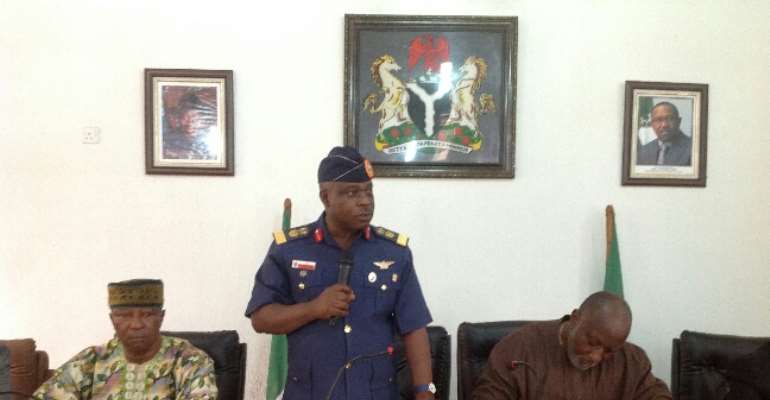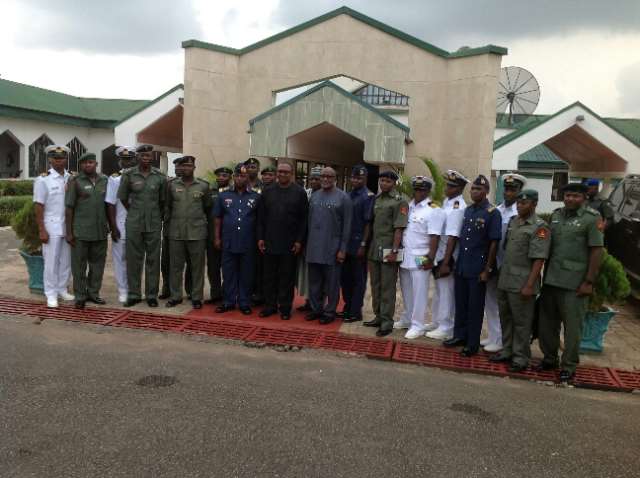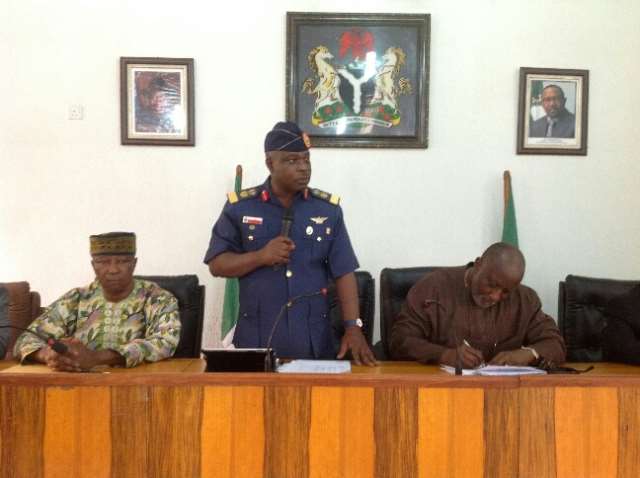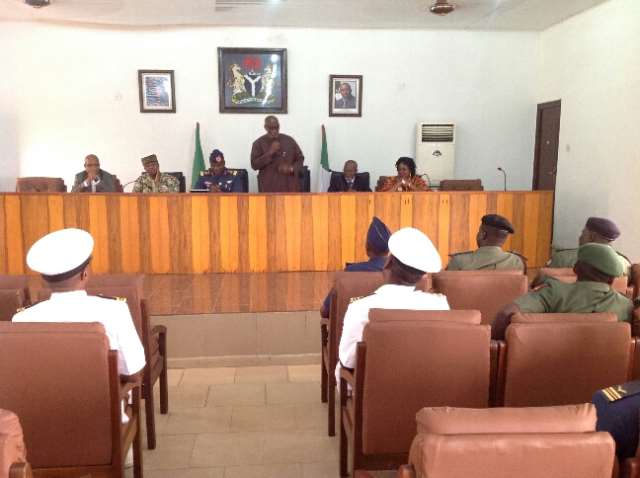Governor Obi Welcomes Armed Forces Command

Gov. Peter Obi welcomed the Armed Forces Command and Staff College Senior Course 36 on their visit to Anambra state.
He told them that his administration was winding down and in the "final push mode", but was still constructively engaged and would be so until the final day on 17 March 2014. Anambra, he said "was a good governance exemplar", but he would leave it to the study tour group to make its own determination and assessment of the state's successes and challenges.
The Study Tour Team leader, Air Commodore SG Jeff-Zanni said the team of 25 senior armed forces personnel would tour the state but would focus more on "Internal Revenue Generation As A Viable Option for Economic Development".
On 30 January 2014, the study team held an interactive session with senior government officials on issues such as "Geography, history, culture, and occupation and people of Anambra State", "Strategies for overcoming the economic challenges of the State" and "Current security challenges".
Prof. Stella Okunna noted that while Anambra State was IGR challenged, it has managed its resources with great fiscal prudence and has never borrowed money from anyone and has the ability to run for three months without recourse to federal funding.
SSG Oseloka H. Obaze noted that the team's visit was propitious since it coincided with the end stage of the Peter Obi administration, which has 49 days to go. He said, "study tours like yours are imperative and create synergy between federal institutions and the states. Anambra state enjoys the bragging right of having the best and most cordial working relationship with the federal government." He recalled that Anambra's "ONA industrial axis (Onitsha-Nnewi-Awka industrial axis) was internationally recognized as the most active and intrusive industrial hub in Africa."
Some of the participants asked what the state was doing in area of tourism, energy, and expressed concern about possible continuity after Gov. Peter Obi leaves.
Prof. Okunna said that Gov. Obi's designed public projects were essentially community-owned and the people at the grassroots knew what was due to them, given the transparency with which the projects were flagged-off

PHOTO 3 RESIZED

PHOTO 4 RESIZED

PHOTO 5 RESIZED
